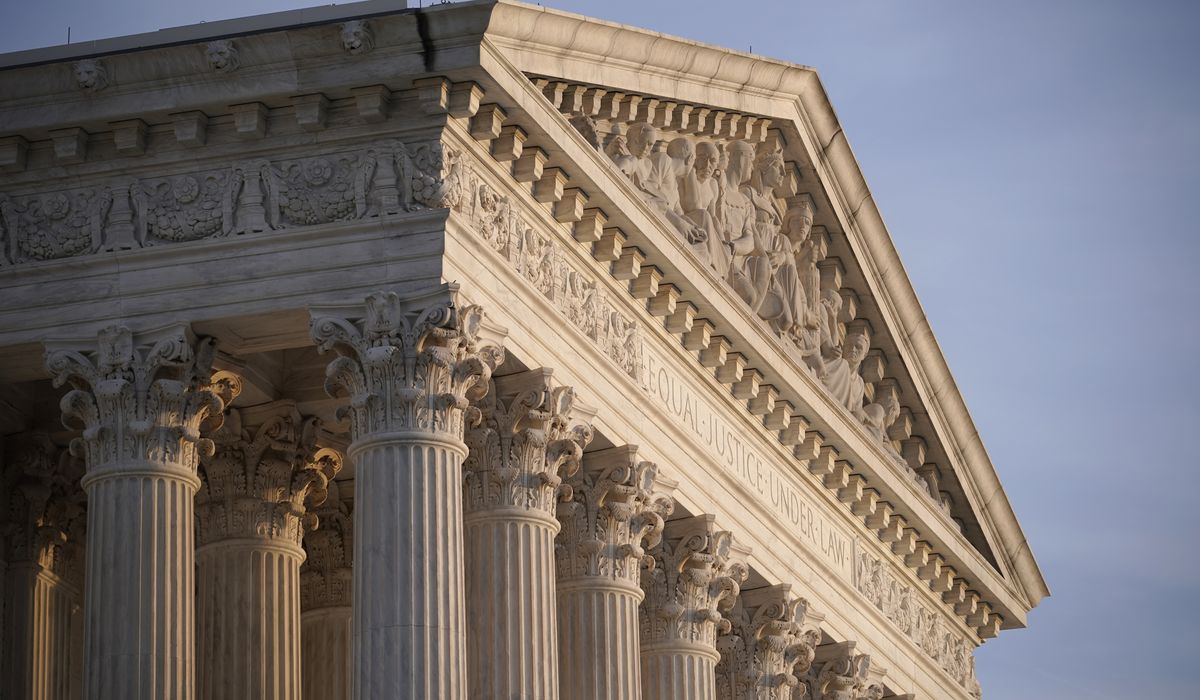


The Supreme Court announced Monday it would hear a trademark case over the use of a person’s name without the individual’s permission in a dispute over the phrase “TRUMP TOO SMALL” — a reference to former President Donald Trump.
The case arose when an individual sought to trademark the phrase “TRUMP TOO SMALL” for T-shirts and hats in 2018. The U.S. Patent and Trademark Office denied the request, citing a federal law that doesn’t allow a person’s name to be used without consent.
The law, Section 1052 of Title 15 of the Lanham Act governing trademarks, doesn’t allow registration of a mark if it “[c]onsists of or comprises a name, portrait, or signature identifying a particular living individual except by his written consent.”
The individual challenged the government’s denial of the trademark under the First Amendment and the U.S. Circuit Court for the Federal Circuit sided with him, ruling that the law is content-based and unlawfully restricts speech about a government official.
The federal government appealed to the Supreme Court, asking the justices to hear the case and arguing there hasn’t been a problem with the law for more than 75 years.
“Section 1052(c) is a condition on a government benefit, not a restriction on speech. And because it is a reasonable, viewpoint-neutral condition, it is consistent with the First Amendment,” the government argued in its court filing.
SEE ALSO: GOP candidate Vivek Ramaswamy: ‘America First’ agenda does not ‘belong to Trump’
It took four justices to vote in favor of reviewing the dispute, though the names of the justices are not made public.
The individual, Steve Elster, had asked the court not to take up the dispute because it goes to the heart of the First Amendment with political commentary about Mr. Trump.
“The mark criticizes Trump by using a double entendre, invoking a memorable exchange from a Republican presidential primary debate, while also expressing Elster’s view about ‘the smallness of Donald Trump’s overall approach to governing as president of the United States,’” his lawyer wrote in court documents.
The case is Vidal v. Elster. It will be argued during the court’s 2023 term, which begins in October.
• Alex Swoyer can be reached at aswoyer@washingtontimes.com.
